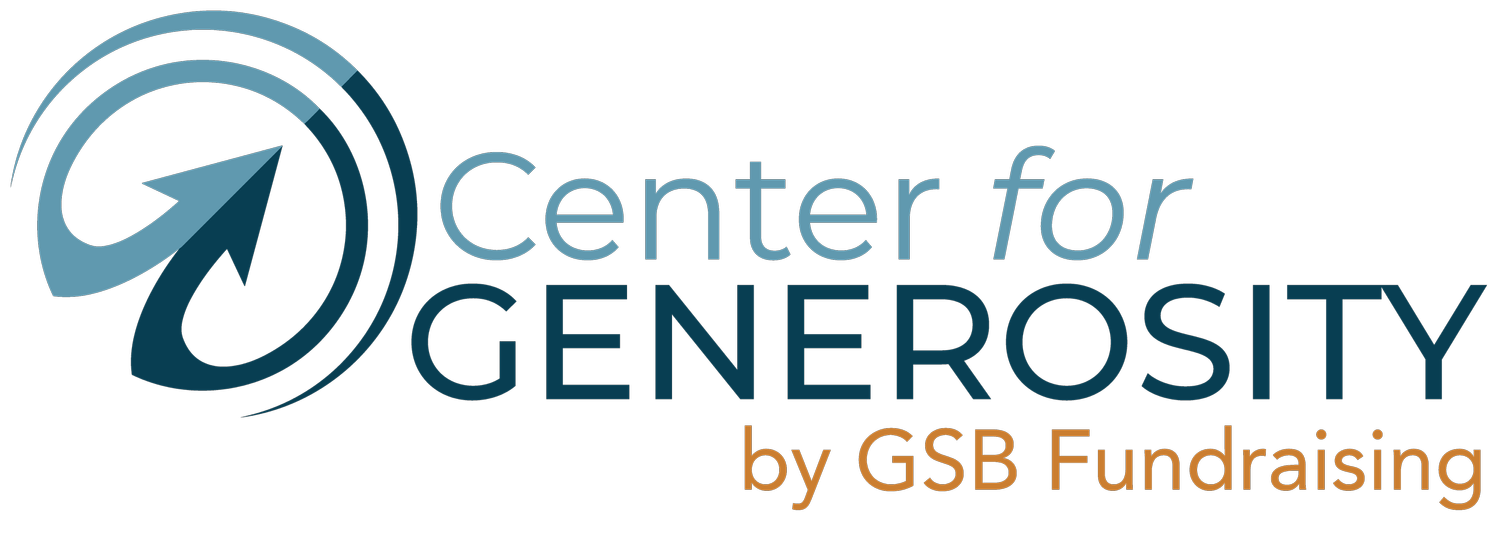Resource Library
Search by Topic
- 10 Steps of Fundraising
- Acknowledgements
- Annual Fund
- Appeal Letters
- Board Governance
- Capital Campaigns
- Case Development
- Challenge Gifts
- Congregation Governance
- Congregations
- Crisis Management
- Database
- Development Councils
- Development Plan
- Donor Relations
- Executive Leadership
- Giving Trends
- Gratitude
- Human Resources
- Lapsed Donors
- Major Gifts
- Marketing
- Matching Gifts
- Mission
- Non-Profits
- Planned Giving
- Public Relations
- Recurring Giving
- Samples
- Self-Care
- Special Appeals
- Special Events
- Stewardship
- Stewardship Appeal
- Storytelling
- Strategic Planning
- The Ask
- Theology
- Tributes
- Volunteers
- Wealth Screen
- Websites
- Youth Fundraising
Improving Board Engagement in 5 Easy Steps
When equipped effectively, Board members can be an organization's most enthusiastic partners. Your current approach may be underutilizing their potential. Learn how to position your board members and the organization for greater impact.
Five Best Practices for Congregation Councils
Faithful leaders are clear, calm, and connected. In this video learn about five practices which help leaders hone these skills. Doing this will put Congregation Councils on the path to thoughtful decisions and effective leadership.
Sample Conflict of Interest
Board members and employees are prohibited from receiving gifts, fees, loans, or favors from suppliers, contractors, consultants, or financial agencies, which obligate or induce the board member or employee to compromise responsibilities to negotiate, inspect or audit, purchase, or award contracts with the best interest of __[org]__ in mind.
Sample Confidentiality Agreement
I particularly recognize the sensitivity of information regarding capital decisions, real estate purchases, decisions regarding closures, mergers, personnel issues, and other strategic plans that may have an impact on __[org]__'s competitive position relative to other organizations.
Board and Staff Leadership and Generosity
Some leaders want nothing to do with conversations about generosity. The reality is key staff and board members are positioned to have tremendous relationships alongside passion and knowledge of the organization making them tremendously important in the fundraising function. This roundtable will focus on being equipped to be a leader for generosity. We will also discuss ways to empower the board/council to take on this role and thrive in it. Because of the MLK holiday, this session was pre-recorded and is posted in the videos section of the Center website.
Development Councils
Development councils are a wonderful way to engage generous donors. But what do development councils do? Join us as we discuss establishing development councils, their role and how we use them to audition potential governance board members.
Board of Directors Self Evaluation
Keeping your Board of Directors healthy and engaged begins with clear expectations. As a rule, board members want to do well and contribute to the mission of the organization. Offering a comprehensive orientation that sets clear expectations and then an annual follow up to allow for accountability can help move board members toward giving their very best. Use the attached document as is or adapt it for your purposes.
Why Job Descriptions are Critical for Council members and how to create them
Few congregations have up-to-date written job descriptions for paid staff members let alone volunteer leadership board members. Without clear expectations, board members can easily fail to live up to expectations. Anxiety rises with uncertainty and the board does not function well.
Sample Board Member Code of Ethics
Having a code of ethics can help inform board members of expectations and give you the grounding to accountability. This is a great sample to get you started in shaping your own code of ethics for your organization. Have members sign this at the start of their term and review it on an annual or quarterly basis when you gather.
Sample Governing Board Job Description
The Governing Board is a single body that only has authority as a whole. No individual member, regardless of position or title, has individual authority outside of the Governing Board meetings. After decisions are made, the Governing Board speaks as one body, not as individuals.
The Development Plan and how the board should interact with it
It’s early January and we should know what our plan for securing generosity for the year will be. Do you have a development calendar? What about goals? Does your board/council know how to monitor the plan and provide assistance in reaching the goal?
The strategic plans relationship to generosity
Many boards (councils) spend lots of time talking about stuff. But, is it the right stuff? And, when it isn’t the right stuff, are we hindering generosity? A strategic plan is critically important in the fundraising function both for churches and non-profit institutions. And, the board/council needs tools for asking for and monitoring the strategic plan.
Board Roles and Responsibilities
Board members need to know their responsibilities and when they are a board member and when they are not. What are their duties and obligations?
Effective Board Meetings
Effective meetings build energy and engagement in organizations by ensuring leaders gifts are used in impactful ways. In this session we will explore practical steps you can implement today to ensure fiduciary responsibilities are met, while increasing engagement and impact.
Identifying and Recruiting Board Members
Healthy and effective organizations start at the board level. Taking the next warm body on the board that says, “I guess I will do it,” will only serve to weaken the organization. Implementing a system for identifying and recruiting strong, passionate, knowledgeable, and generous board members must be a priority for any organization wanting to raise more money and advance their mission. During this roundtable you will receive the steps and an annual calendar for getting this work going well.
















